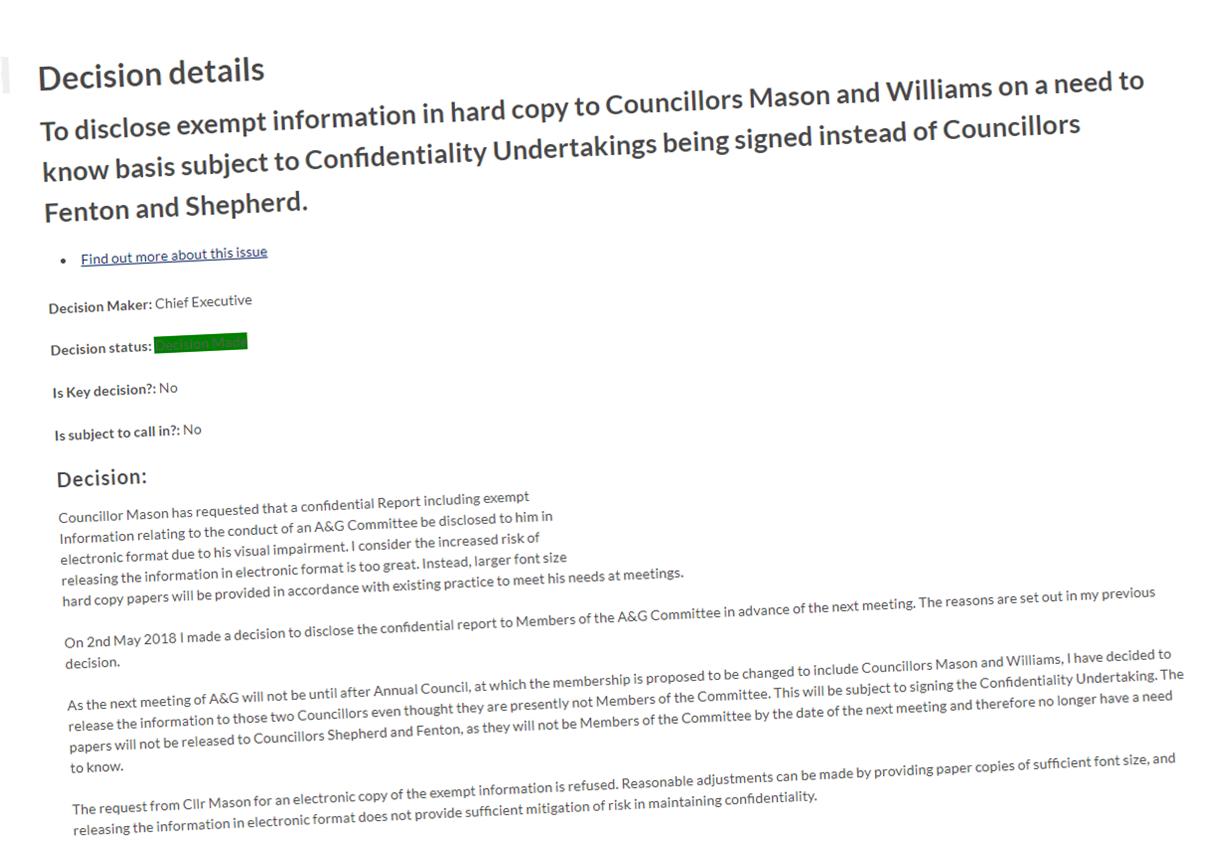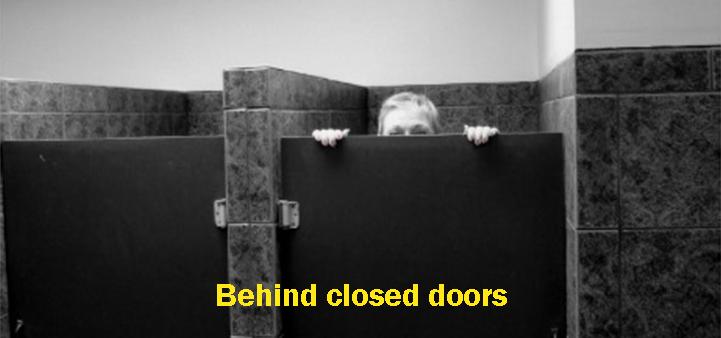Secrecy culture alive and well at the York Council

“Decision” notice published by York Council yesterday
The latest, on the confidential report saga at the York Council, has been revealed.
Councillors are being asked to sign a “confidentiality agreement” before they will be allowed to see a report into last year’s, very public, fall out at the Audit and Governance Committee.
What happened at the meeting has been in the public arena from day one as a “webcast” allowed residents to view the meeting “on line”. The recording of the meeting is still available.
Relations between Council officials and some committee members broke down and subsequently an investigatory report was commissioned. A heavily redacted copy of that report was presented to an Audit meeting but not surprisingly Councillors said that they could not do their jobs without sight of the full report. Subsequently Councillors agreed to discuss the report in private, but officials initially refused to release it in advance of their meeting.
Now it transpires that -with a shuffle in committee membership in the offing next week – those participating will only get “hard copy” and will have to sign a legally binding confidentiality agreement.
But how does this protect the interests of taxpayers? If the independent report – which cost several thousands of pounds to produce – is critical of processes or structures how can residents be confident that there will not be a repetition?
We look forward to hearing how Councillors intend to restore confidence in their stewardship?
In the meantime, several Freedom of Information requests have been lodged in an attempt to get the full report into the public domain.

But the York Council is not alone in seeking to cast a veil over accountability issues. Earlier last week, the Police and Crime Commissioner for North Yorkshire was expected to answer questions about the unexplained and hasty departure of the last Chief Constable from his post.
The overnight decision came without warning , leaving some doubt about whether the appropriate 3 months’ notice had been given (and if so when).
At a public “scrutiny” meeting , the PCC refused to answer questions on the topic before choosing to eject the press and public and go into a private session.
A similar “immediate retirement” occurred in 2011 when the then Deputy Chief Constable left the force. It was several years before the full picture behind the decision emerged.
Some officials don’t seem to realise that the reputation of an organisation is likely to be further damaged in the eyes of the public by secrecy – and the inevitable speculation that follows – rather than adopting a more open and frank approach from the outset.
